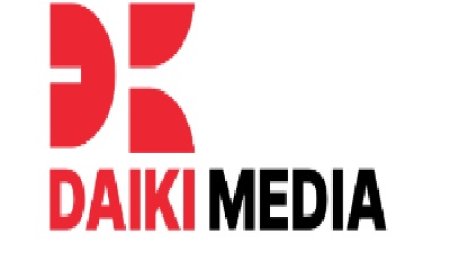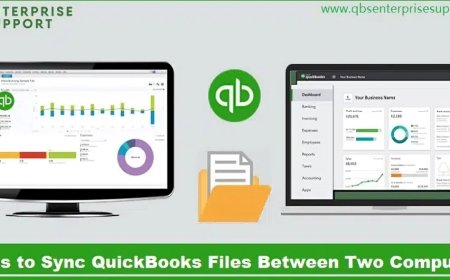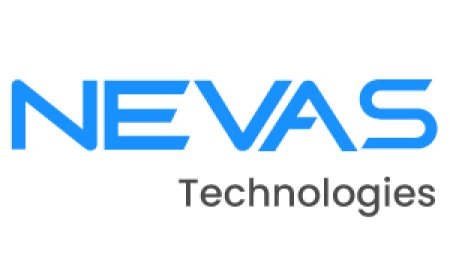How Healthcare Software Development Services Ensure Compliance and Security?
Learn how healthcare software development services ensure compliance and security with robust data protection, secure workflows, and industry regulations.

In todays digital era, healthcare organizations rely heavily on technology to manage everything from patient records to billing and communication. While technology brings convenience, it also brings a big responsibilitykeeping sensitive health data secure and ensuring that all systems follow strict healthcare regulations. This is where healthcare software development services play a vital role. These services not only create software to improve medical workflows but also ensure that every digital interaction, transaction, or data exchange happens securely and in line with the law.
Healthcare data includes extremely personal and sensitive information about patients medical conditions, histories, and treatments. If this data falls into the wrong hands or is mishandled, the consequences can be severeboth for patients and for the healthcare providers. So, building software that supports compliance and security isnt just good practiceits absolutely necessary.
In this blog, well break down how healthcare software development services help maintain security, meet regulatory standards, and offer peace of mind to both providers and patients. Well also explore common regulations like HIPAA, the security features often built into healthcare software, and how custom solutions can help organizations stay ahead of risks.
Why Compliance and Security Matter in Healthcare
Protecting Patient Privacy
Patients trust healthcare providers with their most sensitive personal information. Whether it's about illnesses, mental health, medications, or treatments, this data must remain confidential. Any misuse or unauthorized access could lead to identity theft, blackmail, or emotional harm. By building software that respects privacy, developers ensure that this trust is maintained.
Avoiding Legal Troubles
Healthcare providers operate under strict laws like HIPAA in the U.S. or GDPR in Europe. These regulations are designed to protect patient rights and establish how data should be collected, stored, and shared. Failing to comply with these rules can lead to heavy penalties, lawsuits, and damaged reputations.
Preventing Data Breaches
Cyber threats in healthcare are on the rise. Hackers target hospitals and clinics because medical data is highly valuable on the black market. Strong software security measures help defend against data breaches and cyberattacks, keeping information safe from outside threats.
Supporting Smooth Workflows
When software is built with compliance in mind, it not only secures data but also helps medical staff follow the right procedures. For instance, role-based access controls ensure that only authorized individuals can view or edit certain patient data, making it easier to track who is responsible for what.
Key Healthcare Compliance Regulations Developers Must Follow
HIPAA (Health Insurance Portability and Accountability Act)
HIPAA is a major regulation in the United States that sets rules for how healthcare organizations handle patient data. It requires healthcare software to include safeguards like encryption, access logs, audit trails, and more. HIPAA also gives patients the right to access their own medical records and request corrections.
GDPR (General Data Protection Regulation)
In Europe, GDPR governs how organizations collect, use, and store personal data. It includes healthcare data and requires clear consent from patients, transparent data use, and the ability to delete data upon request. Healthcare software in Europe must meet all these standards to be legally compliant.
HITECH Act
The HITECH Act complements HIPAA and encourages healthcare providers to adopt electronic health records. It also sets extra security standards for managing digital health information and gives more power to regulators when it comes to penalizing breaches.
Other Local Regulations
Each country may have its own healthcare compliance laws. For example, Canada has the Personal Information Protection and Electronic Documents Act (PIPEDA), and India is working on the Personal Data Protection Bill. Healthcare software developers must stay updated on local laws while designing software to make sure it meets regional standards.
How Software Developers Build Secure and Compliant Healthcare Applications
Data Encryption
Encryption converts data into unreadable code that can only be decoded by authorized parties. Its used both when data is stored and when its being transferred over the internet. Even if a hacker manages to intercept encrypted data, it will be useless without the right decryption key.
Role-Based Access Control (RBAC)
RBAC allows only authorized users to access specific data or perform certain actions in the software. For example, a nurse might be able to view but not edit a patients medical history, while a doctor might have full access. This minimizes the risk of accidental data changes or unauthorized access.
Audit Trails and Activity Logs
Audit trails track every action taken within the systemwho accessed what, when, and what they did. These logs are essential for compliance because they help organizations prove that they are following the rules. In the case of a breach or data loss, logs make it easier to investigate and fix the issue.
Secure Authentication
Healthcare software often uses multi-factor authentication (MFA) to verify a users identity. This might include a password plus a text code or a biometric scan. MFA significantly increases login security and prevents unauthorized access, even if a password gets leaked.
Secure APIs and Data Integration
Software often needs to connect with other systems, like pharmacies or insurance providers. Developers ensure that these integrations happen over secure, encrypted channels using APIs that are tested and verified. This prevents unauthorized data exposure during transfers.
Regular Security Testing
To stay ahead of hackers, developers routinely test the software for vulnerabilities. They use tools like penetration testing and vulnerability scanners to find and fix weak points. Regular testing ensures that the system is strong and ready to handle real-world threats.
Read more: How Healthcare Software Development Supports Better Data Management?
Benefits of Using Custom Healthcare Software for Compliance
Tailored to Industry Standards
Custom healthcare software is built with a deep understanding of healthcare workflows and legal requirements. Its easier to incorporate compliance features from the ground up rather than trying to add them to a generic off-the-shelf system.
Ongoing Support and Updates
Laws change and new threats appear every day. A good software development partner will offer regular updates, patches, and improvements to keep the system aligned with current regulations and security practices.
Better User Training and Awareness
Custom software usually comes with onboarding and training services. This ensures that healthcare staff understand how to use the system properly and follow best practices for data handling. Educated users are one of the strongest lines of defense against data mishandling.
Flexible Security Configurations
Every healthcare organization is different. A hospital might need stricter controls than a small private clinic. Custom software allows administrators to set security rules that match their specific needs, making it easier to comply with regulations without overcomplicating the system.
How Compliance and Security Improve Patient Experience
Builds Patient Trust
When patients know their data is secure and handled with care, they feel more comfortable sharing details with their doctors. This openness can lead to more accurate diagnoses and better treatment outcomes.
Speeds Up Medical Services
Secure and compliant software often means faster record sharing, quicker appointment scheduling, and more efficient billing. This results in smoother experiences for both patients and healthcare staff.
Reduces Errors
By automating workflows and using validation rules, healthcare software reduces the chances of human error. Fewer mistakes mean better patient safety and higher quality care.
Enables Transparency
With the help of patient portals, patients can view their own records, track treatments, and communicate with providers securely. This transparency is only possible when the software is compliant with privacy laws and secure against breaches.
Challenges in Maintaining Compliance and Security
Keeping Up with Changing Laws
Healthcare laws often change based on political, social, or technological developments. Software must be regularly updated to remain compliant, which can be challenging without a dedicated development team.
Managing Legacy Systems
Many hospitals still use older systems that were not built with modern security features. Integrating these with newer software while maintaining compliance can be complex and risky.
Insider Threats
Sometimes, data leaks happen from within the organization. Employees might accidentally (or intentionally) misuse their access. Strong access controls and training can help reduce this risk.
Budget Constraints
Some healthcare providers hesitate to invest in secure, custom-built software due to cost concerns. However, the long-term risks and penalties of non-compliance often outweigh the upfront investment.
Future Trends in Secure and Compliant Healthcare Software
- AI-Powered Monitoring: Future systems will use artificial intelligence to detect unusual patterns and alert staff about potential breaches or policy violations in real time.
- Blockchain for Health Records: Blockchain technology offers tamper-proof data storage, making it ideal for secure patient records.
- Biometric Authentication: Fingerprints, facial recognition, or iris scans will soon become common for system logins, replacing passwords.
- Smart Consent Systems: Software will allow patients to manage how their data is used and shared through digital consent forms, improving transparency and compliance.
Conclusion
In the healthcare sector, ensuring the security of patient information and complying with data protection regulations isnt just about following the rulesits about saving lives, building trust, and avoiding serious risks. Healthcare software development services play a key role in making this possible. By designing systems that follow laws like HIPAA and GDPR, and by adding strong security features like encryption, access control, and audit logs, developers make sure that both providers and patients are protected. A well-built system not only helps organizations avoid legal trouble but also improves the overall quality of care.
Choosing the right app development company with experience in healthcare can make all the difference. Such a partner understands the importance of compliance, knows the risks involved, and has the tools to build secure, reliable, and future-ready solutions.
FAQs
What does HIPAA compliance mean in healthcare software?
It means the software meets specific legal standards for protecting patient data in the U.S., including how data is stored, accessed, and shared.
Why is encryption important in healthcare applications?
Encryption protects sensitive data from being read or misused if its intercepted during transmission or stolen from storage.
Can custom healthcare software be compliant with multiple regulations?
Yes, custom software can be designed to meet multiple legal standards like HIPAA, GDPR, and others, depending on the region and type of healthcare service.
How do audit logs help in security and compliance?
They track every user action within the system, which helps monitor behavior, detect misuse, and prove compliance during audits.
Is cloud-based healthcare software secure?
Yes, as long as it includes proper encryption, access controls, and follows industry-standard security protocols, cloud-based solutions are highly secure.
























